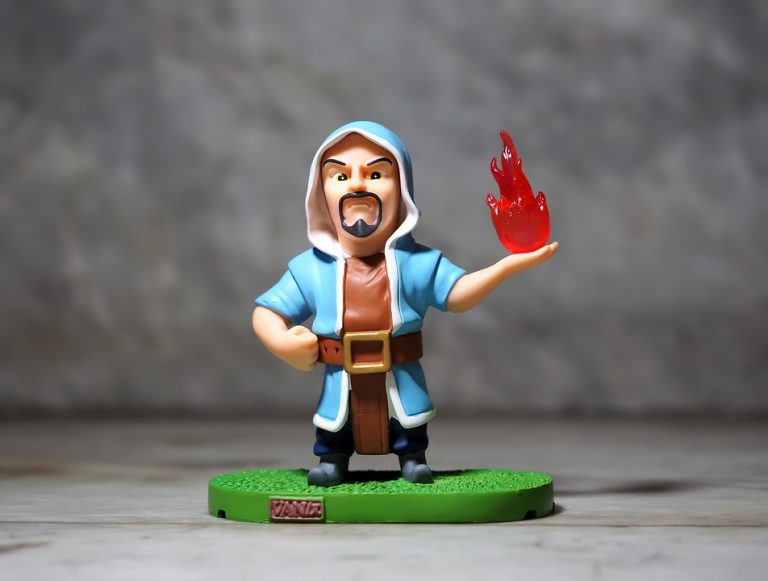Gaming tips are short, fierce lessons that turn fumbling controllers into confident play—and they matter because you want results fast, not excuses. Gaming tips are the difference between getting crushed in your first match and feeling that charge when a plan clicks. If you care about progress, enjoyment, and genuine skill, these are the practical moves you need.
7 Essential Gaming Tips For Beginners
Start here: gaming tips should make your life easier, not heavier. I’m not selling pep talk. I’m handing you steps that work—tested by players, supported by research, and proven in real matches. Studies on the cognitive benefits of play show that focused practice improves attention and problem-solving, and industry data shows beginners who follow a few core rules level up faster. If you want to stop guessing and start improving, read on and make each session count.
Tip 1: Master Core Mechanics Before Glamour
Begin with the smallest building blocks. Learn movement, basic controls, and how your main abilities work. Play a tutorial three times if you must. Mechanics are muscle memory. You want to react without thinking.
Practice drills beat random matches until those basics are instinct. Spend short, consistent sessions—experts recommend deliberate practice in 20–40 minute blocks to build real skills. If you skip this, cosmetics and builds will only look pretty while your gameplay stays shaky.
Tip 2: Choose One Game And Stick With It
If you’re new, resist the urge to hop between dozens of titles. Pick one and commit. Depth beats breadth. The first fifty hours matter most; that’s where you learn pacing, maps, and decision-making.
Stick to one genre at a time too. Skills transfer—sharpshooter aim in one shooter helps in another—but jumping genres dilutes your learning. Give that game a fair shot, and the payoff will surprise you.
Tip 3: Learn From Good Players — Watch, Copy, Tweak
You don’t have to reinvent the wheel. Watch streamers, pro replays, or short tutorial clips and then try what they do. Pause, replicate, and tweak. Experts in learning science note that observational learning speeds skill acquisition when you actively imitate and adapt.
Don’t copy blindly. Ask: why did they move that way? What would happen if I tried it in my games? Make their moves your raw material, then craft your style. Even a 10–minute review of a match can highlight three real adjustments that change outcomes.
Tip 4: Configure Your Setup For Comfort And Advantage
A lot of new players grind with the wrong setup. Comfort is performance. Adjust sensitivity, keybinds, and display settings so your hands and eyes don’t fight the game. If your mouse sensitivity forces you to overshoot, you will blame your aim instead of the settings.
Use official guides and the Steam hardware survey to see common baselines, then tweak from there. Small changes—like lowering input lag or using a slightly higher DPI—fix problems faster than extra practice. And please: get a chair that doesn’t shame your spine after two hours.
Tip 5: Build A Learning Routine That Fits Your Life
Practice without a plan is noise. Create a routine that mixes aim/drill time, match play, and review. Ten minutes of warm-up, thirty minutes of focused practice, and one match with analysis is a simple and powerful cycle.
Tracking matters. Keep a short journal: what you practiced, what changed, and one measurable goal for next time. The best players iterate weekly. This is how small habits add up to real improvement without burning you out.
Tip 6: Communicate Like A Leader, Even When You’re Quiet
Communication wins games. You don’t need to be loud; you need to be clear. Call out what enemies you saw, what you plan to do, and where you need help. One well-timed ping or a short phrase can flip a round.
Practice short, actionable comms: “Rotate left,” “One sliver HP,” “Push on three.” Teams that coordinate win more. Treat comms as a weapon—soft, precise, and ready when you need it.
Tip 7: Manage Losses Like A Pro
If you tilt, you break down faster than any opponent can beat you. Losses are feedback; you must treat them like data, not drama. After a bad match, wait five minutes before logging another. Analyze one or two mistakes, then do one thing to improve.
Mental health matters here. Studies on play and cognitive resilience show that regulated breaks and clear goals reduce burnout and increase retention. Play to learn, not just to escape. That shift keeps you in the game longer and happier.
Create Small Rituals That Anchor Improvement
Rituals are not rituals for show. A warm-up routine, a final warm-down, a brief review—these are low-effort habits that compound. They tell your brain this is practice time and this is rest time. Use tools: record a highlight, use a clip to note a mistake, or write a single line about what went wrong.
Use credible resources when you need a deep dive. Game designers and educators like Jane McGonigal offer practical takes on play and motivation, and you can read expert reviews to understand bigger ideas before you apply them.
How To Make Progress Visible
Measure something simple: accuracy, win rate in a set of matches, or average survival time. Micro-metrics stop you from chasing vanity stats. Keep a rolling log for thirty days and look for trends. If your practice feels fruitless, the numbers will tell you why.
Use validated tools and community trackers to measure reliably. The truth is ugly sometimes, but it’s honest. Embrace it and plan your next move.
Common Beginner Mistakes—and How To Fix Them
- Doing too much at once: pick one habit and nail it.
- Blaming gear for every loss: fix settings before buying new hardware.
- Neglecting rest: your brain clears and learns during downtime.
Fixes are simple, not easy. Cut one bad habit this week. Replace it with one tiny, repeatable behavior. Consistency beats intensity.
A Few Quick, Tactical Wins You Can Use Tonight
- Lower mouse sensitivity and do a 10-minute tracking drill.
- Watch a top player’s single rotation on a map you play and imitate it.
- Use pings instead of long voice messages to keep comms crisp.
- Take a 15-minute walk after a frustrating match—it resets focus.
These small moves are high ROI. Do them consistently.
Why These Gaming Tips Work
They combine deliberate practice, community learning, and ergonomics. Evidence from cognitive psychology shows that targeted practice in short bursts is more effective than unfocused play. Industry reports tell us beginners who follow structured learning paths enjoy the game more and stick with it longer. That’s the power of good gaming tips: they increase skill and fun.
Bottom Line
Gaming tips are not tricks; they are habits. Start small. Practice smart. Communicate clearly. Treat failures like lessons and rest like training. If you follow these seven rules, you’ll find faster progress and more joy in your sessions. Play with purpose and your improvement will follow.
Play hard, but play kind to yourself.
FAQ
How often should a beginner practice?
Aim for short, focused sessions most days—twenty to forty minutes per session is ideal. Consistent, deliberate practice beats marathon grind sessions that leave you burned out.
Do hardware upgrades matter for beginners?
Only after your fundamentals are solid. Good settings and comfort matter more than expensive gear. Upgrade when you consistently know what you need.
Can watching streams replace practice?
No. Watching is valuable for learning strategy, but you must combine observation with active practice. Imitate then test those moves in your own play.
How do I stop tilting after losses?
Build a simple break ritual: step away, breathe, and review one mistake—not the whole game. Reset with a small, achievable warm-up before returning.
— — —
References
Entertainment Software Association provides industry data and player demographics that help explain trends in game engagement (http://www.theesa.com/resource/essential-facts-about-the-video-game-industry/).
The American Psychologist article by Granic and colleagues summarizes scientific research on the benefits of playing video games and cognitive skill development (http://www.ncbi.nlm.nih.gov/pmc/articles/PMC3731673/).
Healthline offers practical, research-informed insights into how video games affect mental health and cognitive function for players of all ages (http://www.healthline.com/health/benefits-of-video-games).








